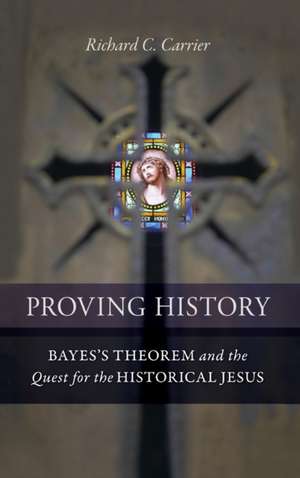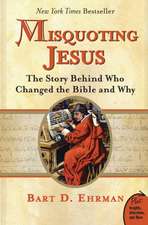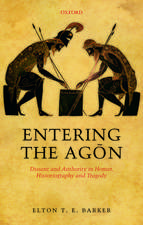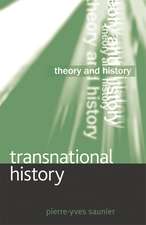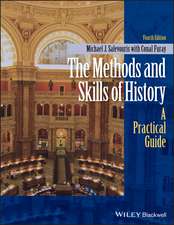Proving History: Bayes's Theorem and the Quest for the Historical Jesus
Autor Richard C. Carrieren Limba Engleză Hardback – 23 apr 2012
Preț: 163.03 lei
Nou
31.20€ • 32.19$ • 26.41£
Carte disponibilă
Livrare economică 12-26 februarie
Livrare express 28 ianuarie-01 februarie pentru 34.30 lei
Specificații
ISBN-10: 1616145595
Pagini: 340
Ilustrații: illustrations
Dimensiuni: 163 x 230 x 25 mm
Greutate: 0.59 kg
Ediția:New.
Editura: Prometheus Books
Recenzii
-Dr. Malcolm Murray, Author of The Atheist’s Primer
"Carrier applies his philosophical and historical training to maximum effect in outlining a case for the use of Bayes’s Theorem in evaluating biblical claims. Even biblical scholars, who usually are not mathematically inclined, may never look at the ‘historical Jesus’ the same way again."
-Dr. Hector Avalos, Professor of religious studies, Iowa State University, and author of , The End of Biblical Studies
Notă biografică
Richard C. Carrier, an independent scholar with a doctorate in ancient history from Columbia University, is the author of Why I Am Not a Christian: Four Conclusive Reasons to Reject the Faith, Not the Impossible Faith: Why Christianity Didn’t Need a Miracle to Succeed, and Sense and Goodness without God: A Defense of Metaphysical Naturalism. He has also contributed chapters to The End of Christianity, edited by John W. Loftus; Sources of the Jesus Tradition: Separating History from Myth, edited by R. Joseph Hoffmann; The Christian Delusion: Why Faith Fails, edited by John W. Loftus; and The Empty Tomb: Jesus beyond the Grave, edited by Robert Price and Jeffery Lowder.
Descriere
Anyone with an interest in historical methods, how historical knowledge can be justified, new applications of Bayes’s Theorem, or the study of the historical Jesus will find this book to be essential reading.Almost all experts agree that the Jesus of the Bible is a composite of myth, legend, and some historical evidence. So what can we know about the real Jesus? For more than one hundred and fifty years, scholars have attempted to answer this question. Unfortunately, the quest for the historical Jesus has produced as many different images of the original Jesus as scholars who have studied the subject. The result is a confused mass of disparate opinions with no consensus view of what actually happened at the dawn of Christianity. And this uncertainty is not unique to the historical study of Jesus. The problems related to establishing the reliability of historical criteria apply equally to any historical analysis of the persons and events that have shaped our lives and the beliefs we hold dear. This in-depth discussion of New Testament scholarship and the challenges of history as a whole proposes Bayes’s Theorem, which deals with probabilities under conditions of uncertainty, as a solution to the problem of establishing reliable historical criteria. The author demonstrates that valid historical methods—not only in the study of Christian origins but in any historical study—can be described by, and reduced to, the logic of Bayes’s Theorem. Conversely, he argues that any method that cannot be reduced to this theorem is invalid and should be abandoned. Writing with thoroughness and clarity, the author explains Bayes’s Theorem in terms that are easily understandable to professional historians and laypeople alike, employing nothing more than well-known primary school math. He then explores precisely how the theorem can be applied to history and addresses numerous challenges to and criticisms of its use in testing or justifying the conclusions that historians make about the important persons and events of the past. The traditional and established methods of historians are analyzed using the theorem, as well as all the major "historicity criteria" employed in the latest quest to establish the historicity of Jesus. The author demonstrates not only the deficiencies of these approaches but also ways to rehabilitate them using Bayes’s Theorem.
